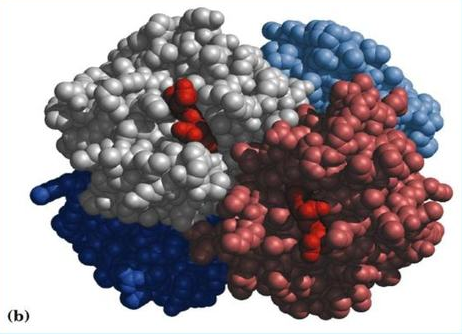Recombinant protein antigens often have several different epitopes, some of which are sequence epitopes and some are structural epitopes. Polyclonal antibodies obtained by immunizing animals with denatured antigens are mixtures of antibodies specific to individual epitopes and can be used in general to detect natural structures or denatured target proteins. A side benefit of using denatured proteins as immunogens is that denatured proteins tend to be more immunogenic and can stimulate a strong immune response in animals.
The expression system of Escherichia coli is usually chosen for antigenic purposes because it is the most costly system in terms of time and money. In order to improve the possibility of the target protein expression and the convenience of purification, sometimes only a small fragment of the target protein, such as a specific domain, is expressed.

The three-dimensional structure of proteins
The Specific Domain Of a Protein
If the purpose of antibody preparation is solely for wb detection, it is economical and rapid to use synthetic small peptide as antigen, but there is a risk of weak immunogenicity or non-regenicity due to inappropriate selection of peptide segment. Since antibody preparation requires a long period, two or three different peptide segments are often selected to prepare antibodies using polypeptide antigen to ensure the success rate of the experiment.
The purity of polypeptide antigen for immunization is required to be greater than 80%. Although a higher purity can theoretically obtain antibodies with better specificity, in practice, animals always produce a large number of non-specific antibodies, thus masking the benefits of antigen purity.
In addition, the preparation of antibodies from small peptides must be cross-linked to the appropriate carrier antigen to enhance its immunogenicity. Two common antigenic carriers are KLH and BSA.
Post time: Mar-23-2023
